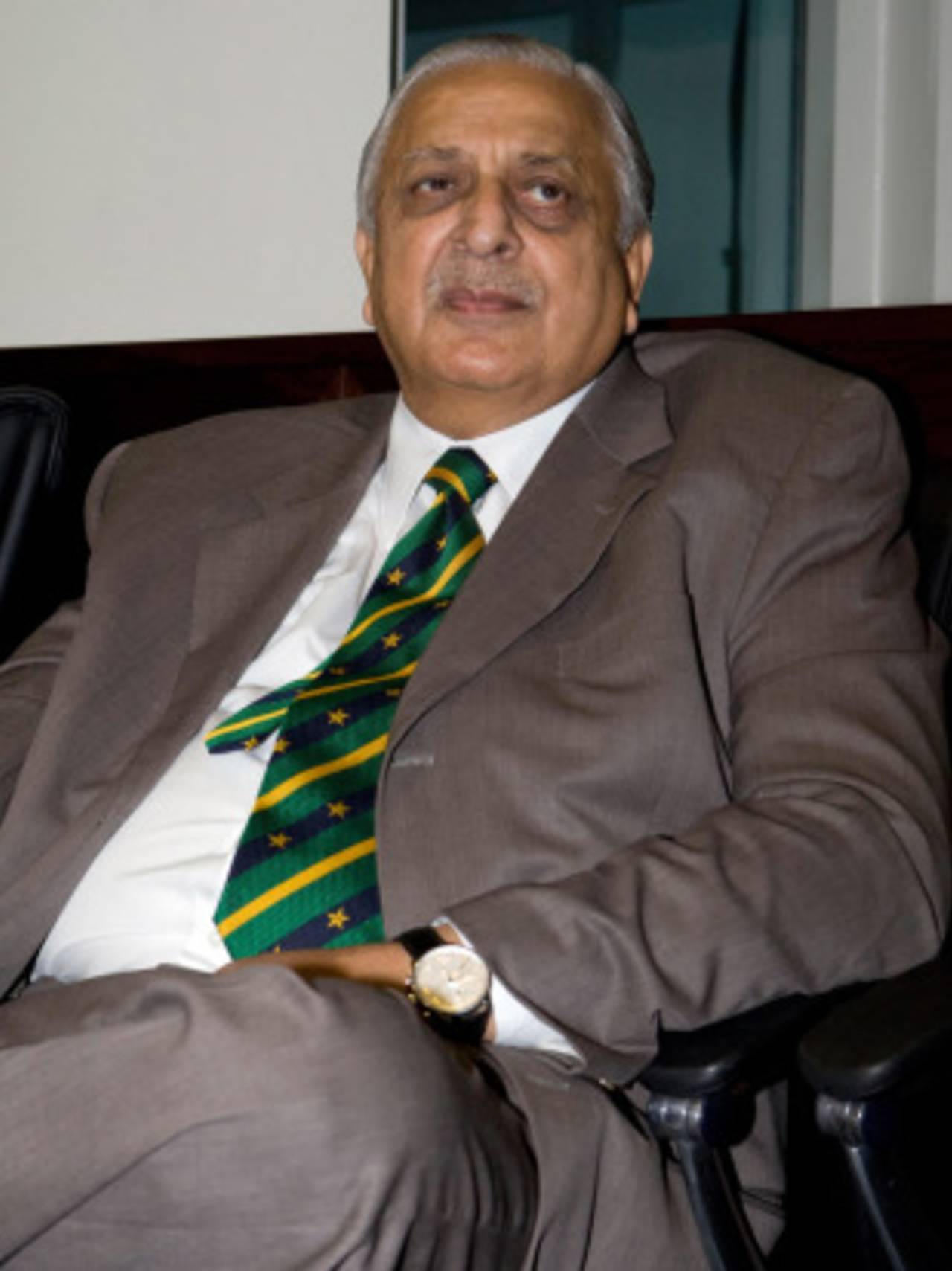Taking note of the continuing decline in the governance of cricket in Pakistan, the ICC has given the PCB a hard rap on the knuckles and decided to monitor closely the running of the game in Pakistan. After a two-day board meeting at the ICC's HQ in Dubai - the first since the spot-fixing scandal that rocked the world of cricket - the message of the world governing body to one of its leading members was clear: sort out the game's administration or face the consequences, potentially in the form of sanctions.
A wide-ranging series of measures has been approved by the ICC requiring Pakistan to not only toughen its approach to corruption within the game but to also work alongside the ICC's task force on Pakistan "to carry out any reforms which may be deemed necessary to restore confidence in the administration of the game" in that country.
In this statement lies an implicit recognition and acknowledgment of the administrative mishaps in Ijaz Butt's two-year tenure, as well as the breakdown in relationship between the board and ICC. Under Butt's administration, the ICC has seen a full member attacked by terrorists in Pakistan, an incident that took international cricket away from the country. That almost led to a legal battle between the PCB and ICC and, though it was averted, the PCB didn't even file a report on the incident to the ICC until well over a year later.
The ICC's task force, initially set up to examine ways to bring international cricket back to Pakistan and cushion against subsequent financial losses, has been "reconstituted" for this purpose; in effect, it's brief has been widened to go beyond and look at ways to work with the PCB in improving governance. Giles Clarke, the ECB chairman who heads the task force, is believed to have played a crucial role in the meetings to broaden the force's role. Peter Chingoka, the ZC chairman who has also extended a helping hand to the PCB by offering his national side as the first tourists to Pakistan since the terror attacks, has been appointed to the team, which also includes Ranjan Madugalle, Ramiz Raja, Mike Brearley and Dave Richardson, the ICC's general manager.
The spot-fixing scandal that erupted during the tour to England this summer has also brought its own specific repercussions. The Pakistan board refused to initially suspend the three players at the centre of the scandal, eventually compelling the ICC to do so. That sparked another war of words between Butt and the ICC, the former claiming the latter had acted with undue haste as the police investigation was ongoing. Matters took a
bizzare twist when Butt claimed there was "loud and clear talk" of England's players taking money to lose an ODI this summer. He was forced to
retract the statement after the ECB threatened legal action and the whole affair prompted some within the ICC to consider the
possibility of suspending Butt from his ICC directorship.
It is against this backdrop that the ICC has told the PCB that "it must act and be seen to be acting to uphold the zero-tolerance attitude to corruption in sport." Pakistan now has 30 days to conduct a thorough and far-reaching review of their "player integrity issues" and report back to the task force.
In the review, the PCB must show that it has introduced a domestic anti-corruption code, in line with the ICC's own code. Not all member countries currently have a domestic code but the ACSU has only requested all members to implement a domestic code that mirrors the ICC's, a sign of how seriously it is considering the problem in Pakistan. The PCB has also been asked in that time to implement an education programmes for players, a "proper, accountable and robust disciplinary process for the sport" and a process to deter and detect corrupt elements within the game, "whether it be players, officials, agents or any other individual."
In effect, the PCB has been asked to take measures which should've been taken ten years ago after the Qayyum commission report, a decade in which the clouds of corruption have hovered consistently over Pakistan cricket. Failure to do so could lead to sanctions according to the ICC, though the nature of these have not been specified. The worst case scenario - and an extremely unlikely one - is that Pakistan is suspended as a full member, though it is thought a likelier option might be to find ways to deal with officials other than Butt.
With Butt's recent statements in mind, the board has also been told not to take any action "which might put themselves in a conflict of interest position as regards the allegations" that are currently under investigation, or to make "public comments and disclosing confidential information which undermine the integrity, reputation and image of the game and/or any ongoing disciplinary or criminal investigation/proceedings."
All of which is likely to place further pressure on Butt, who has already been facing severe criticism domestically from across the spectrum.
Rumours were rife last week that he was about to be replaced, though that has come to nought.
Osman Samiuddin is Pakistan editor of Cricinfo
